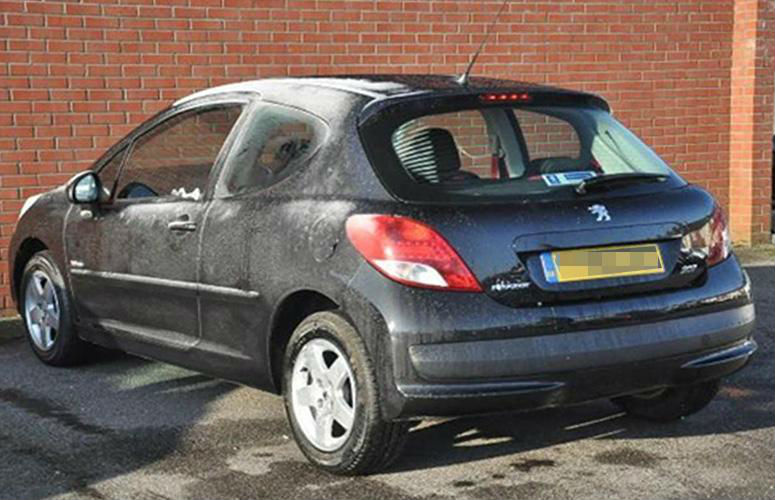Selling a used car on Auto Trader: costs, how to list and how to get the best price

The UK’s largest car-selling site offers more opportunities to buyers and sellers, but also the risk of scams. Is Auto Trader the best place to sell your used car?
Sections
Sellign your car on Auto Trader
Auto Trader is likely to be your first port of call when trying to sell a used car.
According to the car-listing site, 93% of UK consumers know who they are and the site has three times the audience of its nearest competitor.
However, Auto Trader’s huge scale your car will be one of 450,000 listed on any given day, making it vital that your car stands out.
Selling a car also involves the risk of fraud, which is a heightened concern because Auto Trader isn’t involved in arranging payment.
Here are our top tips for getting the price for your car on Auto Trader and selling safely.
Before we go any further, it's worth highlighting that, while this is generally the best way to get a good price on your car, it can take time and effort.
If you're in a rush to sell and are willing to accept a lower (sometimes much lower) price, you could have a read of our guide to selling to webuyanycar.com.
We have a series of articles on selling a car, including Auto Trader, webuyanycar, Gumtree and Motorway. See which one works best for you.
Getting the best price when selling on Auto Trader
The arrival of new model cars in September and March also means that large numbers of used cars come onto the market in these months, thus increasing the competition.
The season matters: a convertible suits the Spring and Summer and a four-wheel drive may be more popular during Winter.
If your car is approaching the five-year mark, consider selling it before its birthday: The Money Advice Service notes that there’s a perception that cars are not as reliable after five years or 60,000 miles.
You’ll need the V5C Registration Certificate, service history and MOT certificate (if it has one) in order to sell a car, whilst receipts for work done to the car can reassure potential buyers.
Auto Trader recommends you clean the car and consider professional cleaning if you’ll recoup the costs.
Recouping costs is also crucial when it comes to getting repairs done: buyers of older cars are more likely to be prepared for smaller problems. Additionally, consider getting a fresh MOT if the current one is about to expire.
Make sure your car is ready to sell before listing on Auto Trader, as adverts generally go live within 24 hours.
MOT tests are now tougher. Read more about the new rules here.
Valuing your car
Auto Trader includes a free valuation tool, which uses your registration and mileage to recommend a price based on what similar cars sold for.
You may also want to make a manual valuation. Marcus Rockey, who runs tips website The Used Car Guy, recommends you search for your model of car in a 100-mile radius and look at the prices:
“The rule of thumb is that your car should be in the cheapest third of all comparative cars in a 100-mile radius, to help make a sell in a couple of weeks.”
Auto Trader itself notes that its automatic valuation is not an upper limit.
The valuation assumes a car is in ‘good’ condition, so “if a car has no damage at all and is in an excellent condition it's likely to be worth more than our guide price.”
Optional extras such as a rear-facing camera or built-in satnav can also raise a car’s value above the valuation, as can a full-service history.
When picking a price, using round numbers – so £3,000 instead of £2,995 – can increase the number of views a car gets, according to Auto Trader.
Creating an advert on Auto Trader
Auto Trader offers three levels of advertisements; see our costs section for more information.
Whichever you choose, you’ll be asked to list the features of your car and write a short description, where you should highlight the car’s best feature i.e. “great miles to the gallon”.
You’ll also be able to include up to 20 pictures. Autotrader suggests you use all of these and include pictures of the following:
- Front corner (ideal for the primary picture)
- Rear corner
- Front straight-on
- Back straight-on
- Side profile
- Close-up of a wheel – especially if they are alloys
- The dashboard
- Front and rear seats
- Inside the boot
- The engine bay
- Any damage to your car
- With a convertible, take a picture with the roof down and one with the roof up
You can also include pictures of the car keys and documents, but make sure you’re not revealing any personal information, especially your address.
Auto Trader has a detailed guide on car photography available (click here to download), so don't let your car end up looking like this!

For contact details, Auto Trader provides a free ‘Protect Your Number’ service, where potential buyers contact an Auto Trader number and it is directed to you.
However, Marcus Rockey of the Used Car Guy suggests leaving a real mobile number, so buyers can text you, which they may feel more comfortable doing.
Avoid leaving your email address, as this carries the risk of scams and Auto Trader provides both email and chat tools for buyers to contact you in any case.
False advertising of cars is prohibited by law, so make sure all details are correct and disclose any faults upfront.
Don't forget the car insurance for your new car: compare quotes with Confused.com
Costs and fees on Auto Trader
Auto Trader’s prices vary by car value and level of advert package.
These range from £9.95 to £19.95 for cars valued under £1,000, although you can advertise for free for seven days and with just five photos.
For cars valued over £1,000, prices range from £36.95 to £58.95, for cars valued over £10,000, from £39.95 up to £64.995.
The three packages are Basic (two weeks), Standard (three weeks) and Premium (six weeks).
The two higher levels include photos being displayed in search results and Premium listings are featured at the top of the search results.
Auto Trader claims that the Standard package and Premium adverts get twice and four times as many views, respectively, as Basic adverts.
Standard and Premium package adverts also rank higher on mobile device search results, which could be useful given 70% of Auto Trader visits now come from mobile devices.
Avoiding scams on Auto Trader
Sellers on Auto Trader are at risk of four types of scams. If you receive any suspicious emails, send them to scam@autotrader.co.uk and Action Fraud.
Most familiar are phishing scams, that ask you to provide personal details: Auto Trader says they’ll never ask for your log in details in an email or text message.
Premium rate scammers usually text you, claiming to be interested but unable to call you, instead requesting you call them.
The number they provide is often charged at a hugely expensive premium rate.
Shipping scams involve remote buyers offering to pay the full amount for a vehicle, but insisting the seller first pays a refundable transport fee.
Fake paying scams involve customers offering to pay using PayPal and similar accounts that were created with false credit card details; for more on payment, see the dedicated section below.
Before organising a test drive or revealing your address, get the potential buyers full details.
Meet at your home and at no point give the potential buyer your car keys or allow them to be in the car by themselves or otherwise out of sight.
Also, check they have a valid driving license and insurance that will cover your car before they drive.
Read more: 16 common email scams and how to spot them
Is Auto Trader the best site to sell your car?
Before you decide to sell, or even list, your used car on Auto Trader, it's worth looking at some of its rivals that offer a different service.
First up we should stress that, if you're willing to put the time and effort in and have time to wait for the right offer, Auto Trader will probably be the best place to sell your used car.
However, there are rivals out there that allow you to sell your car online quickly and easily while still offering a decent valuation.
Webuyanycar is probably the most well-known option - you can get a valuation here - but chances are you will get a better price selling your car through one of its less-known rivals.
You can get an online valuation in minutes from Motorway using the box below (read our detailed Motorway review here).
Note we may receive a small fee if you do decide to go with them, but this won't affect the price you get and we want to stress there are many other options out there, such as Confused.com, Money4YourMotors and CarConverter.
Your best option is to get a few online quotes, see how the best one compares to the price you think you're likely to get selling on Auto Trader, then decide whether it's worth putting in the extra effort to get that price.
Getting paid for your car
If you decide to sell with Auto Trader, note that the site is not involved in the payment process, which is directly between buyer and seller, meaning it’s important to take precautions.
Whatever approach you take, make sure that the money has cleared into your bank account (not just ‘pending’ or appearing) before handing over the keys. Genuine buyers will accept this and shouldn’t hassle you.
Online payments are easiest, either through Faster Payments or CHAPS systems.
If the buyer is paying cash, arrange for the handover to happen at your bank, where the staff can count the money and check it’s genuine before depositing it.
Cheques are not ideal, but if you accept them then make you get the buyers name and address in case you need to chase them up (but again, don’t hand over the keys until the money has cleared).
Once you’ve sold your vehicle
Always provide a receipt to the buyer and keep a copy for yourself.
Then give the green ‘new keeper’s details (V5C/2) slip from the logbook to the buyer.
You can notify the DVLA that you’ve sold the car online, or by tearing off the bottom section of your V5C document and send it to the DVLA, saying you’ve sold the car.
It’s important to inform the DVLA to receive a tax refund and avoid being held responsible for any future penalties involving the car.
Tell your insurers that you’ve sold the vehicle as soon as possible.
Don't forget the car insurance for your new car: compare quotes with Confused.com
Comments
Be the first to comment
Do you want to comment on this article? You need to be signed in for this feature